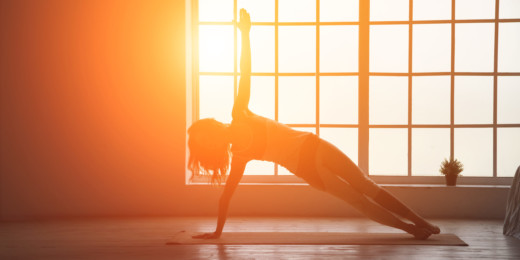The coronavirus, now officially a pandemic, presents some unique challenges to our daily mental health that go far beyond worrying about government response times, growing death rates and what the future may hold, says David Spiegel, MD, associate chair of psychiatry and behavioral sciences and director of the Stanford Center on Stress and Health.
Many of our daily coping mechanisms for handling stress -- like planning ahead or getting together for social interactions -- are disappearing, he says. I turned off my computer pop-up news alerts long enough to ask him about these challenges and how we can face them.
Can you explain how some of the unique challenges of coping with this particular event are affecting people?
It's become difficult to plan ahead because of so many future unknowns, and yet one of the typical ways of dealing with a problem is to plan out step-by-step how to handle it.
With the coronavirus, all bets are off. Things you take for granted -- like the ability to go to work or school -- are in question. You don't know whether you can travel, or plan social events. People have economic worries about what might happen to their jobs, to income -- not to mention all the health worries and concerns about others who are sick. On almost every front, there is some anxiety being generated.
In addition, social support, one of our major methods of coping, at some level is being taken away. We can't get together for big events, like basketball, or even give hugs. It can feel very threatening. Because of all this, it can be difficult to put the issue to rest in your mind.
Can you explain how our minds are working as we face these uncertainties and changes to our daily lives?
This feeling of being unsettled can make anxiety and depression worse. People are having trouble just buying toilet paper -- even getting supplies at the grocery store can be a challenge. Americans aren't used to having their resources constrained.
Part of the problem is that we have two fundamental ways of thinking.
The first way doesn't require much thought at all, and takes little energy. It's what we use to get through the day, doing routine tasks, like typing or getting up and going to work. But when much of that routine is in question, then the second method steps in.
This second method requires a lot more thought and energy. It involves evaluating new situations and making choices. We have a more limited capacity for this type of thought. We get tired more easily. Since so much of the routine is gone at this particular moment in time, it's hard to resolve any problem, let alone all of them.
What causes this feeling of anxiety, and what are some coping methods that we can use to keep it under control?
It can be a challenge because some of our traditional methods of coping are gone, so it's important to do what you can. Keep to your routine as much as possible, and definitely keep doing those things you usually do to stay healthy -- when you can. Try to get plenty of sleep, exercise and don't overeat or under-eat.
The media is not always helpful, blurting out information all the time and triggering your body's "911 response" that causes your heart to race. Try limiting your exposure to the media. People who watch the news for two hours or more a day are worse off. Exert some control over all that media input.
What about when that's not enough, and anxiety begins to feel like it's spiraling out of control? Any other coping methods that may be helpful?
Try to set aside time to do things that calm your mind, again like any kind of exercise, or meditation or mindfulness. Try deep-breathing exercises or just take a walk out in nature. Take a little time more time to yourself to read a novel, or write a poem, or listen to music. This helps you put the stressors into perspective.
I do a lot of work teaching self-hypnosis, which helps separate your physiological response from your psychological response. If you don't have that constant interaction between the two -- if you can help get your body more comfortable -- that can really help. Then the two don't feed off each other so much.
We tend to react physiologically to stress. Our muscles tense. We breathe more quickly. Our blood pressure goes up. Try to interrupt that cycle of psychological and physiological arousal.
While on the one hand, it's not a bad idea to keep an eye on how your body is doing -- checking for coronavirus symptoms, like fever, cough, shortness of breath -- it's important to remember that, as bad as this is, in most cases you just get better. I tell my patients to use your stored good memories and fantasies to calm yourself. It does yourself and your body good.






